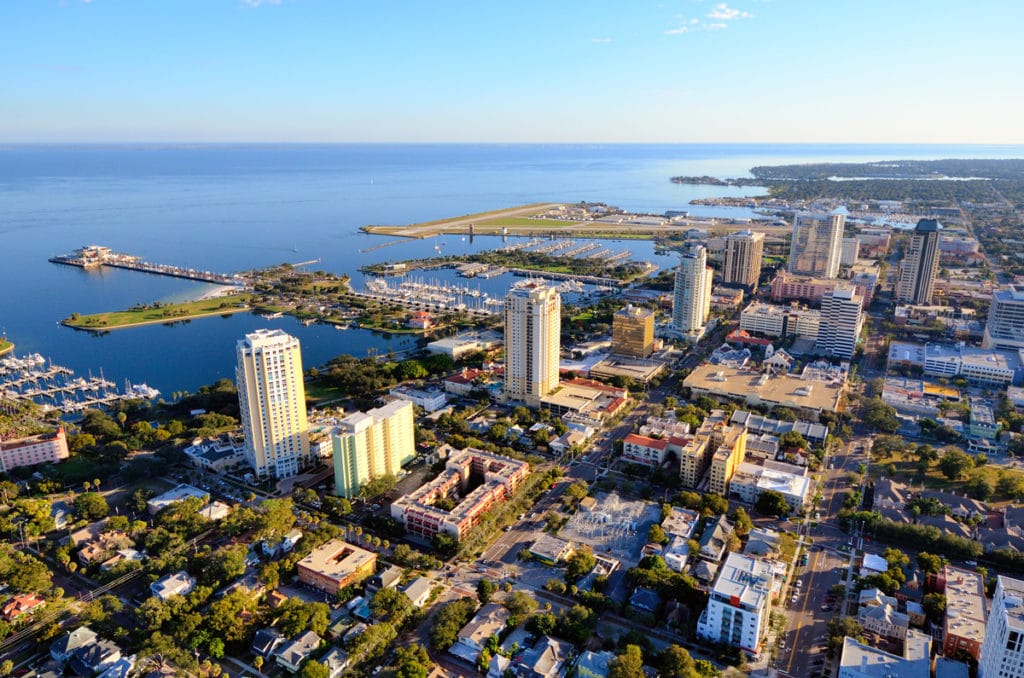EDIT – The directive allows non-essential businesses to remain open as long as they follow Centers for Disease Control social distancing guidance. Commissioner Ken Welch initially worried the exception was an “Achilles heel.” But by the end of the two-hour discussion, he said the guidelines could help curb infections while not killing “more jobs than we absolutely have to.”
ABC ACTION NEWS Reports:
Pinellas County leaders are mandating that all residents stay at home except for essential needs, in an effort to prevent the spread of coronavirus.
The “safer-at-home” initiative, which will go into effect on Thursday, March 26, will enforce that people should only leave their homes to go to grocery stores, pharmacies, banks, gas stations, etc. or to exercise outdoors while following social distancing guidelines.
Pinellas County Commissioners say the measure will not force golf courses or boat ramps to close, as long as social distancing rules are being followed.
The order DOES NOT force non-essential businesses to close.
The Pinellas County Sheriff, Bob Gualtieri, says he is equipped to enforce the new rules and also suggested that businesses, such as retail stores, post notice of the “safer-at-home” resolution and informing customers that CDC guidelines must be followed for anyone entering the store. Any businesses caught several times breaking the rules could face fines up to $500 and even potential jail time.
Pinellas County leaders would also like to see the rule enforced regionally, though Hillsborough County has not yet enforced a “safer-at-home” rule.
At the state level, Governor Ron DeSantis has not issued a “stay-at-home” order similar to what Pinellas County is doing. Prior to the weekend, Florida’s Commissioner of Agriculture Nikki Fried urged Gov. DeSantis to issue a statewide stay-at-home order for all Floridians.
IF A STAY AT HOME ORDER IS ISSUED IT WOULD BE AS FOLLOWS:
The order “immediately limits all movement outside…beyond what is necessary to take care of ‘essential services’ or ‘necessary activities.’”
What are you allowed to do under a stay-at-home order?
The city says you can:
- Go to the grocery store, a convenience store of a warehouse store
- Go to the pharmacy
- Go to medical appointments
- Go to a restaurant for take-out or drive-thru
- Care or support a friend or family member
- Take a walk, ride a bike, hike, job and be in nature for exercise — still, practice social distancing
- Walk pets and take them to the vet if necessary
- Help someone get necessary supplies
The city says to NOT:
- Go to work, unless you’re providing essential services
- Visit friends or family if there’s no urgent need
- Be closer than six feet from others
- Visit loved ones or friends in the hospital, nursing home or other health care facility.
The order also directs law enforcement to disperse any crowd of more than 10 people, which may include criminal charges or fines.
Castor has been pushing the idea of the stay-at-home order but was not in support of a curfew, which Hillsborough County is considering. She said the order “isn’t going to be as onerous as putting a curfew in place.”
“[We’re] asking individuals to say inside, stay away from each other… [with] exemptions for all essential businesses …” Castor said Monday. “If we continue to put off, and off, and off for more information, more people are going to get the virus.”
Local essential businesses are not required to close due to the order but they are encouraged to conduct social distancing practices by limiting the amount of shoppers allowed in at one time, staggering hours or taking other approaches.
Essential businesses include:
- Healthcare and public health
- Hospital and laboratory personnel, caregivers, mental health workers, doctors, nurses, researchers, pharmacists, dentists, social workers, technicians, funeral home and cemetery workers.
- Law enforcement, public safety, and first responders
- Police officers, firefighters, paramedics, and emergency medical technicians, 911 call center workers and those who oversee emergency service operations.
- Communications and information technology
- Technicians, operators, call centers, wireline and wireless providers, cable service providers, satellite operations, and manufacturers and distributors of communications equipment. Workers who support radio, television, and media service, including news reporters, weather forecasters, studio, and technicians for news gathering and reporting, data center operators, HVAC and electrical engineers, security personnel, IT managers, software and hardware engineers, and database administrators.
- Chemical
- Workers at manufacturing plants, workers in laboratories, workers at distribution facilities, workers who transport basic raw chemical materials to the producers of industrial and consumer goods, including hand sanitizers, food and food additives, pharmaceuticals, textiles, and paper products.
- Government facilities
- Election personnel, building employees, security staff, trade officials, custom workers, educators
- Critical manufacturing
- Workers who manufacture materials and products for medical supply chains, transportation, energy, communications, food and agriculture, chemical manufacturing, nuclear facilities, dam operations, water and wastewater treatment, emergency services, defense industrial base
- Defense industrial base
- Workers who support the U.S. military, including aerospace; mechanical and software engineers, manufacturing/production workers; IT support; security staff; security personnel; intelligence support, aircraft and weapon systems mechanics and maintainers.
- Energy
- Utilities and telecommunications staffers, natural gas/propane workers, the electricity industry, engineers, cybersecurity/risk management staff, and environmental remediation.
- Financial
- Bank employees, employees at other financial/lending institutions
- Food and agriculture
- Grocery store employees, pharmacy worker, some restaurant workers, including delivery drivers, company cafeterias, animal agriculture workers, and the food and beverage industries, farmers, food processing workers, warehouse workers, and food truck delivery drivers.
- Nuclear reactors, materials, and waste
- Transportation systems
- Mass transit workers, auto repair and maintenance workers, trash collectors, postal and shipping workers, air traffic controllers, air transportation employees, dispatchers, maintenance and repair technicians, warehouse workers, truck stop and rest area workers, and workers who maintain and inspect infrastructure.
- Public Works
- Workers who inspect and maintain dams, locks, levees, bridges, sewer main breaks, traffic signals and buried/underground utilities.
- Water
- Employees needed to operate and maintain drinking water and wastewater/drainage infrastructure.























No comments